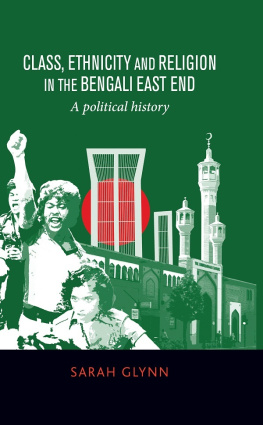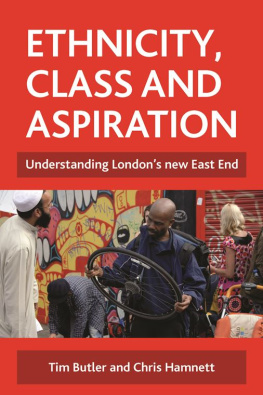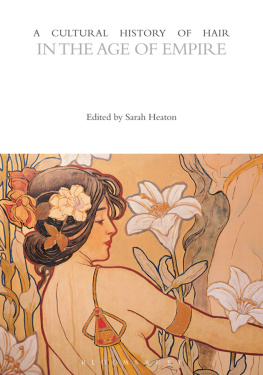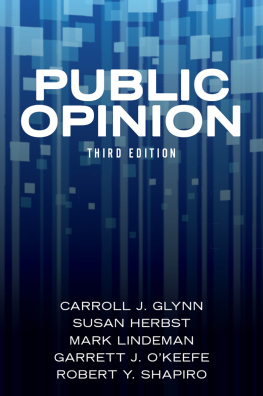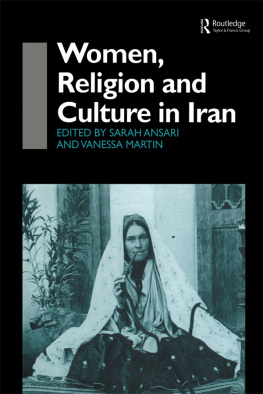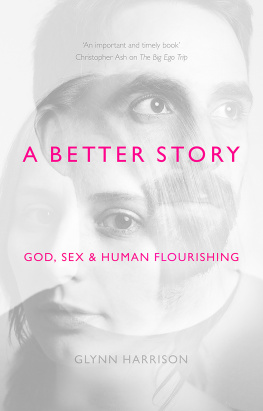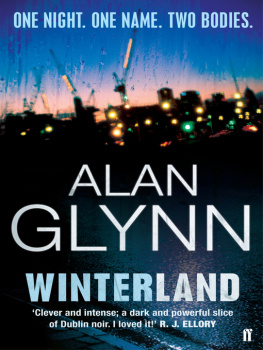Copyright Sarah Glynn 2014
The right of Sarah Glynn to be identified as the author of this work has been asserted by her in accordance with the Copyright, Designs and Patents Act 1988.
Published by Manchester University Press
Oxford Road, Manchester M 13 9 NR , UK
and Room 400, 175 Fifth Avenue, New York, NY 10010, USA
www.manchesteruniversitypress.co.uk
Distributed exclusively in the USA by
Palgrave Macmillan, 175 Fifth Avenue, New York,
NY 10010, USA
Distributed exclusively in Canada by
UBC Press, University of British Columbia, 2029 West Mall,
Vancouver, BC , Canada V 6 T 1 Z 2
British Library Cataloguing-in-Publication Data
A catalogue record for this book is available from the British Library
Library of Congress Cataloging-in-Publication Data applied for
ISBN 978 0 7190 9595 5 hardback
First published 2014
The publisher has no responsibility for the persistence or accuracy of URLs for any external or third-party internet websites referred to in this book, and does not guarantee that any content on such websites is, or will remain, accurate or appropriate.
Typeset
by Helen Skelton, Brighton, UK
My relationship with the East End could be said to have begun in the 1890s, when my infant grandparents arrived at London Docks to exchange the uncertainties and worries of life in the Russian Empire for the uncertainties and possibilities of life in Londons Jewish ghetto. But I did not get to know the place until 1998, when I embarked on a PhD that compared the political mobilisation of the Jewish immigrants with that of the Bengalis who now live in this same area of London. After fifteen years researching in Tower Hamlets, I have a wide network of Bengali contacts (and some dear friends) but I have never lived there. I am an experienced political activist outwith Tower Hamlets - and this has given me invaluable insights into the workings of political mobilisation and organisation however, my political involvement in the borough has only been as an observer. So, for example, at the time of the 2005 general election, I went out with canvassers from both Labour and Respect, after first explaining that I would not take any active role. When, as sometimes happened, interviewees asked about my own ethnic background, I explained my family connection to the area, which maintained my distance from current events (though it could obviously have affected peoples willingness to make comments that might be perceived as anti-Semitic). However, I have found that, for this type of research, good background knowledge and an ability to get on with all sorts of people and to portray their views honestly are more important than the personal identity of the researcher. I hope my interviewees feel that I have succeeded in this protrayal, even if they do not agree with all the conclusions that I have drawn.
This book was made possible by all those who gave me their time and their memories the many people quoted in the text (and all interviews not otherwise attributed were carried out by me), and also others who do not appear directly but whose thoughts and recollections helped me develop a fuller and more nuanced understanding of the events they lived through. My first thanks, then, must go to all those I interviewed both in long recorded oral histories and in more informal discussion. It is a sadness of oral history work that some of those who have taken part may be no longer alive at the end of the project, but I am particularly glad to have had the opportunity to meet and to listen to Shiekh Abdul Mannan, Shah Lutfur Rahman, Mala Sen, Jack Shapiro, Peter Shore, Lew Cherley and Jack Cigman. I would also like to thank (for interviews and in many cases further information and advice as well): Helal Uddin Abbas, Zoinul Abidin, Hena Ahmed, Junaid Ahmed, Maniruddin Ahmed, Massud Ahmed, Nahin Ahmed, Abu Sayad Ali, Afsar Ali, Farhad Ali, Rushanara Ali, Sunahwar Ali, Bodrul Alom, M. Hamid Hossain Azad, Rahim Baksh, Alima Begum, Amina Begum, Runa Bibi, Aziz Choudhury, Shofiqur Rahman Chowdhury, Abdul Gaffar Chowdhury, G.M. Chowdhury Najim, Jill Cove, Syed Nurul Islam Dulu, Uma Ezra, Shahagir Bakth Faruk, Terry Fitzpatrick, George Galloway, Ali Syed Goyas, Abdul Hannan, Emdad Haque, Anamul Hoque, Mohammad Hussain, Azmul Hussein, Abul Ishaque, Nurul Islam, Shirazul Islam, Hussain Ismail, Rajonuddin Jalal, Rahman Jilani, Dan Jones, Shirajul Alam Khan, Rohima Khanom, Shiria Khatun, Tahura Khatun, Max Levitas, Fatima Matin, Abdul Miah, Abjol Miah, Aisha Miah, Fanu Miah, Hanufa Miah, Harun Miah, Jusna Begum Miah, Sajjad Miah, Shazid Miah, Sundor Miah, Kumar Murshid, Ghulam Murtaza, Golam Mustafa, Michael Myers, Noore Nazneen, Nehar Begum Quddus, Masud Rahman, Oliur Rahman, Ruksana Rahman, Shanaz Rashid, Abdul Razzak, Muhammad Abdus Salique, Jack Shapiro, Abdus Shukur, Barney Shuster, Bertha Sokoloff, Azam Tamimi, Pola Uddin, Alhaj Shams Uddin, Jannathara Uddin, Ansar Ahmed Ullah and others who asked not to be named.
I am grateful to all those who helped me to get my bearings in a place I have now learnt to love, and especially the late Caroline Adams, who is justly remembered with affection throughout Tower Hamlets for her pioneering community work with young Bengalis and also for her unique account of the early Bengali immigrants. She assisted me in piecing together events in the early stages of this research, and was generous with ideas of people to contact. I wish she could know how valuable I have found her tapes and papers, which she left to the local history library.
My first regular contact with the area was through St Hildas East Community Centre, where I did some voluntary work with Bengali women and children in 1999, and also organised and edited an oral history project. My thanks to all the staff and users for making me welcome. Thanks too, to all those we interviewed for the oral history project, and to Jasmine Begum-Miah and Subo Basu who conducted the Bengali interviews.
In recent years, my East End base has been the offices of the local Bengali radio station, and I would like to thank Najim Chowdhury, Shahina Moni and all my other friends at Betar Bangla for making me feel part of their community. And thanks too to Ansar Ahmed Ullah and Jamil Iqbal for sustaining me over the years with information and friendship.
I am grateful to Abdul Hannan and Harun Miah for introducing me to their work with young people on the areas streets, to Tower Hamlets College for enabling me to meet sixth-form students, and to Ali Mohammad Azhar for showing me the manuscript autobiography by his brother Ali Abbas. I also want to express my thanks for help and for discussions on my work (and other subjects) to Anis Ahmed, Farukh Ahmed, Abul Kalam Azad, Farid Bakht, Stephen Beckett, Simon Blumenfeld, Sue Carlyle, Michael Glynn, Simon Glynn, Clive Heemskerk, Nazrul Islam, Abdul Jalil, Denise Jones, Kay Jordon, Solly Kaye, Joanna Kernaghan, Kevin Morgan, Dilu Naser, Mimi Romilly, John Twigg, Ahmed Ullah, Andrew Whitehead, Nigel Winfield, the Tarling Tenants and Residents Association, the pupils of Madani Muslim Girls School, and members of Al Muhajiroun, the Awami League, Brick Lane Mosque management committee, Stepney Jewish Community Centre, the Young Muslim Organisation, Tower Hamlets Labour Party and Tower Hamlets Respect. On the other side of the seven seas I would like to thank Babul and Nipa Asan who despite a much too rushed visit to Bangladesh enabled me to get a sense of life in Sylhet.


